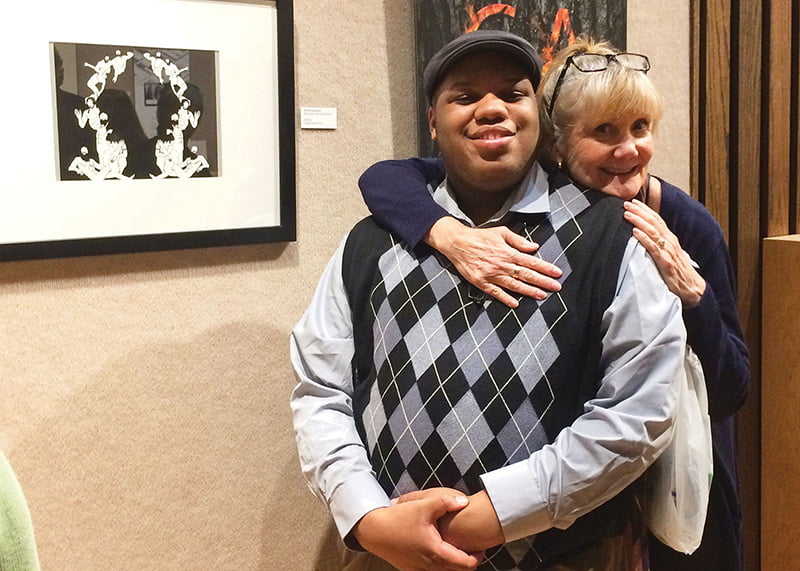
by Jill Ragar Esfeld
jill.esfeld@theleaven.org
Recently, I went out to dinner with two of my close friends.
We chatted as we waited just inside the restaurant for a table.
When the hostess came to seat us, even though we were clearly together, she looked at me and asked, “Table for one?”
I was completely confused; I couldn’t imagine what she was thinking.
I indicated the friends standing next to me and said, “There are three of us.”
As we walked to our table something dawned on me. And when we sat down, I blurted out to my friends, “It’s because you’re black!”
They laughed.
“It happens all the time,” one said. “If we’re waiting for a table with other black people we don’t know, they’ll try to seat us together.”
This was a small glimpse into the life of a black person in the shadow of a white world.
It’s a glimpse I’ve had often enough to know that world exists, and black people struggle through it every day.
For 15 years, I ran a children’s program in the inner city, and I had a book group comprised of mostly black teen girls.
They liked young-adult novels that were fun and romantic — but I couldn’t find those kinds of stories with black protagonists.
So, we would get books about white people, cut pictures of black couples from Ebony magazine and paste them over the book covers.
The experience made me conscious of every book I read, television show I watched or movie I saw.
So much pleasure is derived from relating to fictional characters; imagine how that would change if the characters never looked like you.
While directing the program, I met Austin — a young black boy who was a gifted artist — and I became his mentor.
One day, I discovered Austin had never visited the Nelson-Atkins Museum in Kansas City, Missouri, a place where I practically grew up.
I was very excited to take him for the first time.
But the day we went, my paradigm of the museum experience shifted so dramatically, I felt as if I was visiting for the first time, too.
I became painfully aware of the fact that there was little that a black person could relate to in the museum. Almost every work we viewed was of white people done by white artists.
But Austin didn’t mind. He was used to this kind of experience. It was his normal — living in the shadow of a white world.
My life with Austin has often allowed me a glimpse through that window. I could give you a hundred examples.
I could tell you about shopping with Austin and how he is followed and watched everywhere we go.
I could break your heart with stories about Austin’s struggle to adjust in a mostly white college, and the roommate who never even spoke to him for an entire semester.
I could tell you about teaching Austin to drive and offering to give him a car if he would just get his license.
He wouldn’t.
Can you imagine a teenage boy refusing a car?
If you don’t understand why, you haven’t watched the news.
I could tell you a hundred stories, but the point of every one of them would be the same.
No matter how kind, good or deeply Christian you are, you can’t understand the black experience unless you live it.
But you can acknowledge it with compassion and work for change.
That’s what the bishops are asking of us in their pastoral letter on racism.
You may not be fortunate enough to have an Austin in your life, but I have a suggestion that may help open your heart.
Simply walk through your day, every moment, observing and reacting as if you have a black child walking beside you.
Think about what you experience. How would the child relate to it? What can you do to make the world better for him?
Be conscious of that child in everything you do and see, in every discussion you have, and every story or joke you tell.
“The command of love requires us to make room for others in our hearts,” the pastoral letter states.
You can answer that command by realizing that, in fact, that black child beside you is real. He is Jesus in the Gospel saying, “I was a stranger and you took me in.” Jesus is every race and color, and he is always beside you — listening, watching and longing for you to love your neighbor.







❤️
Very moving, Jill, written from the heart. May God bless you and help keep you safe, Austin.
Such beautiful words Jill – so relevant today..
my heart aches for young black men….
God please protect them..
please give Austin a hug for me next time you see him❣️
Thank you for your open heart and honesty Jill.